SPECIAL
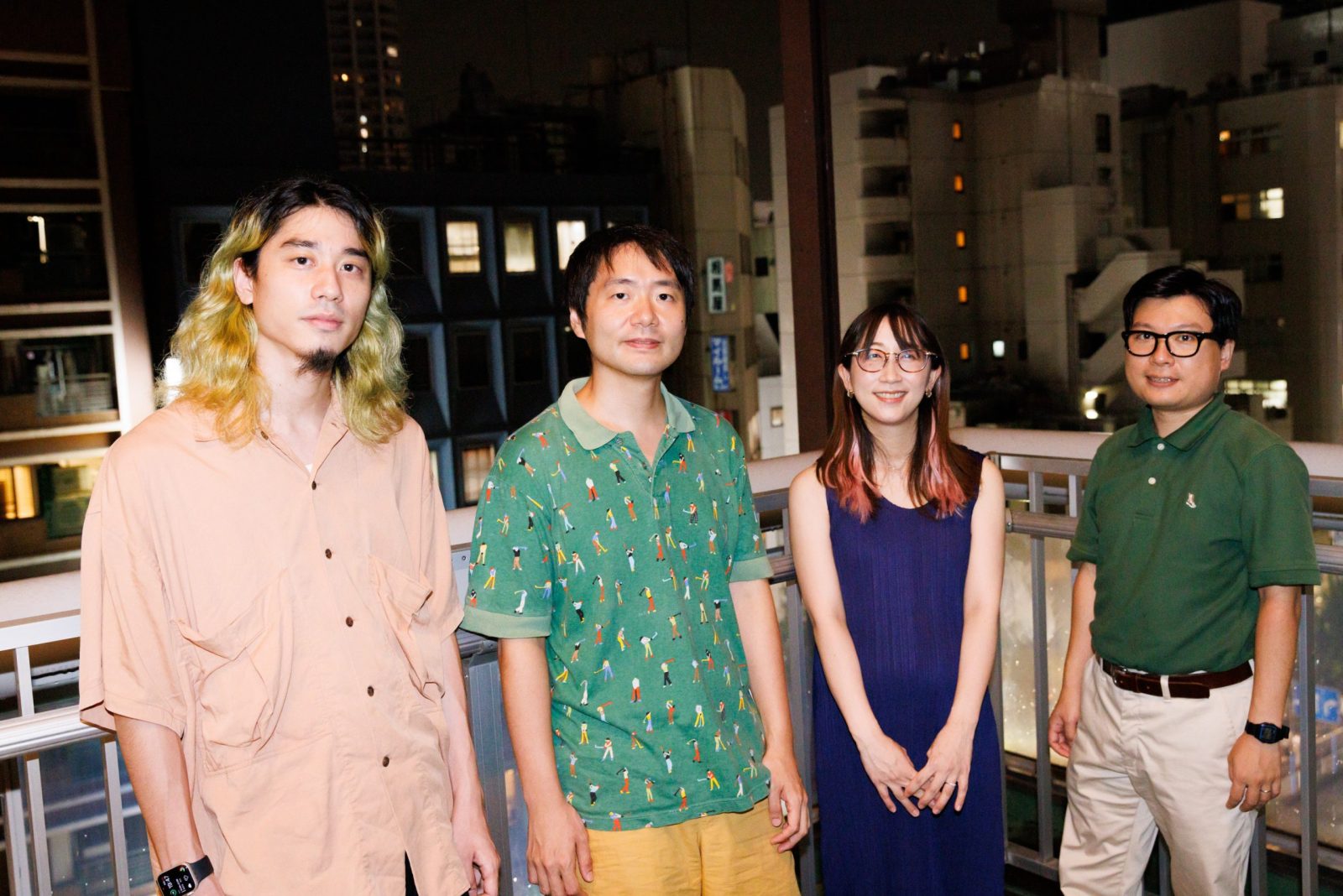
NORUHA “Virtual Disorder” Kishodai Kageyama x hiyorigeta x Shun Hatakeyama x Suzu Shibuki Roundtable [Part 2]
You too are a "NORUHA". A place where performers and audiences exist on an equal footing
In the second part, we will hear about their thoughts at the time of the premiere and their response to the re-run. The discount for those under 29, which will be implemented throughout the Tokyo Festival 2024, was apparently suggested by the NORUHA(hereafter, the Noriha). In addition, there are free tickets for those under 18 for Noriha performances. It seems that the “flattening of the playing field” will continue to spread.
(Interview and writing: Kawazoe Fumiko, Photography: Maezawa Hideto, Location: Tokyo Metropolitan Theatre)
Click here for [Part 1]
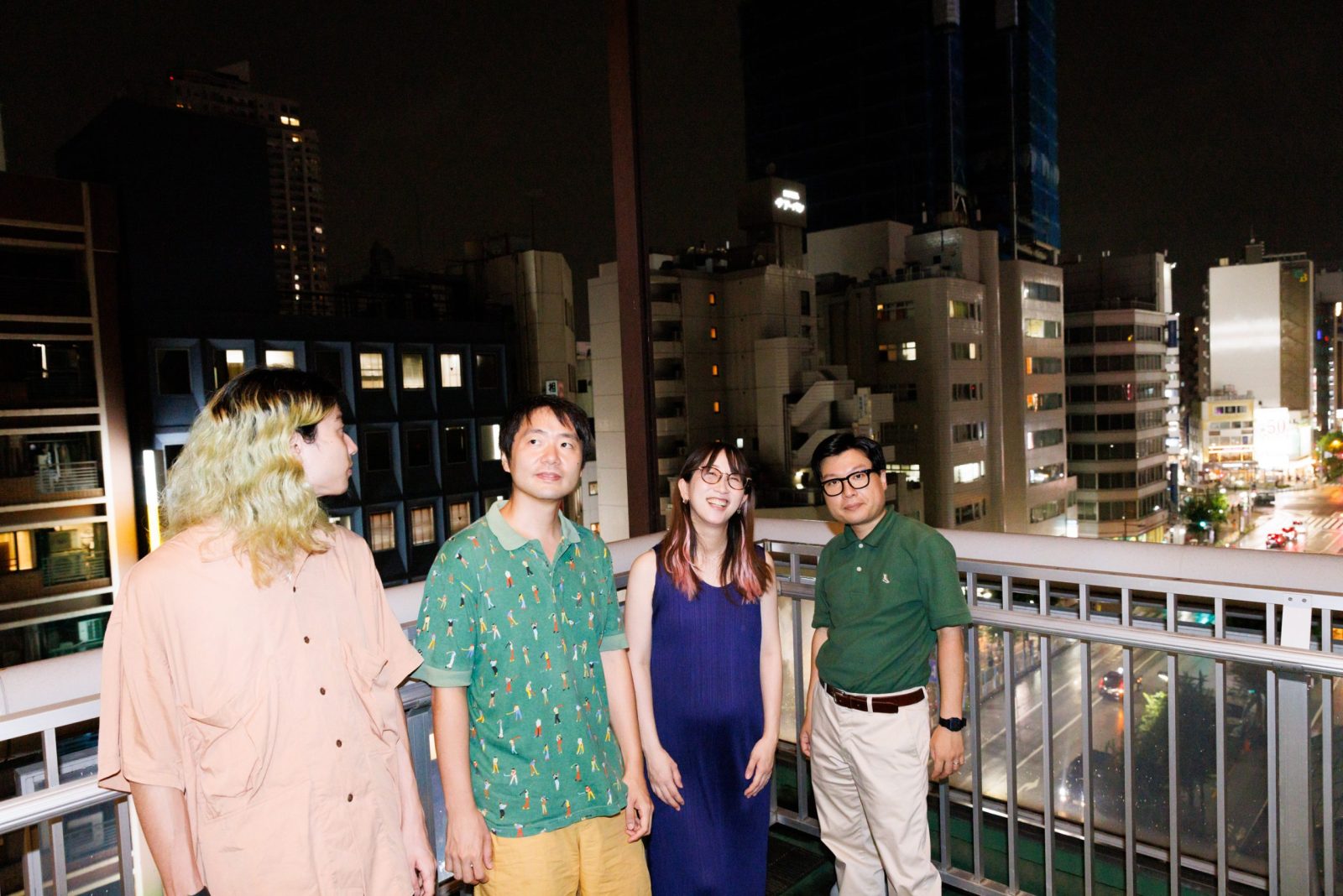
Revival performance reveals new core
-The basis of “Virtual Disorder” which will be performed for the first time in two years, is “Natorigawa,” a kyogen play about a monk who forgets his own name, and “Funabenkei,” a Noh play about Minamoto no Yoshitsune’s exile to the west, in which one actor plays two roles: Shizuka Gozen, Yoshitsune’s concubine, and the vengeful spirit of his former enemy, Taira no Tomomori. Based on these two classics, the play reflects the state of identity in the modern world, including social media. Rehearsals are reaching their climax, and today was the first full rehearsal. How do you feel about it so far?
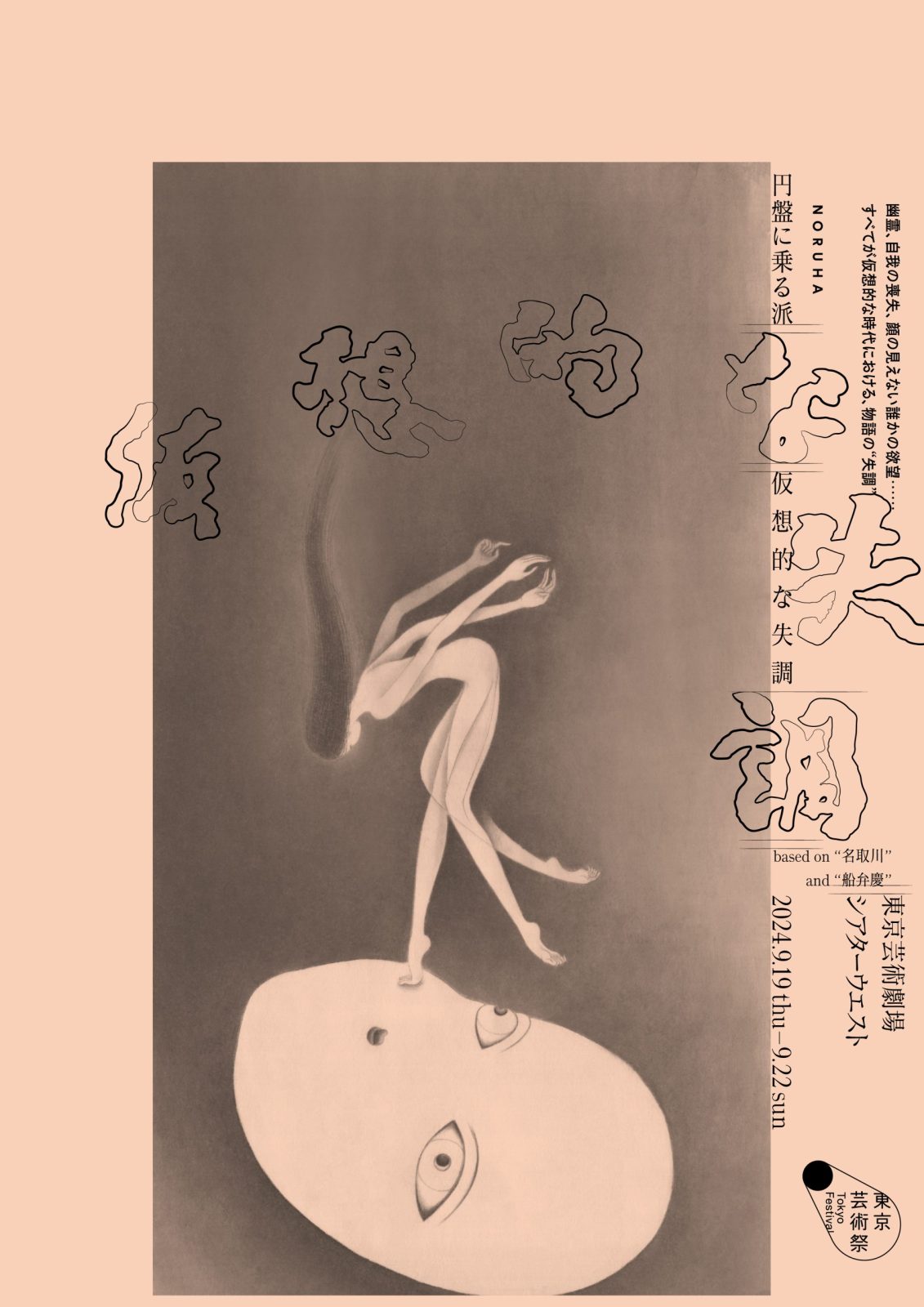
Kageyama: I believe in you all, so I’m sure it’ll be a great performance (everyone laughs). After the run-through today, I commented, “I think the core of the work will become clear from now on,” but I expect that the core will emerge in a different way than the premiere. Given the current social situation, there will probably be some parts that seem more vivid than the premiere.
As Kageyama Shibuki said, the state of social media is constantly changing. The word “twitter” appears in the play, but in the last two years it has been bought by Elon Musk and turned into “X”, and words like “impression zombie” have also been born. But there is a universality to it, and I’m really looking forward to seeing how it will turn out after the final rehearsals.
Speaking of myself, I feel that there is still a lot I can work on. I feel like the re – run has made it more understandable than necessary, and that the parts that were interesting precisely because I struggled with it in the premiere have become too smooth. Now I’m thinking, “On the other hand, how can I make it more appealing?”
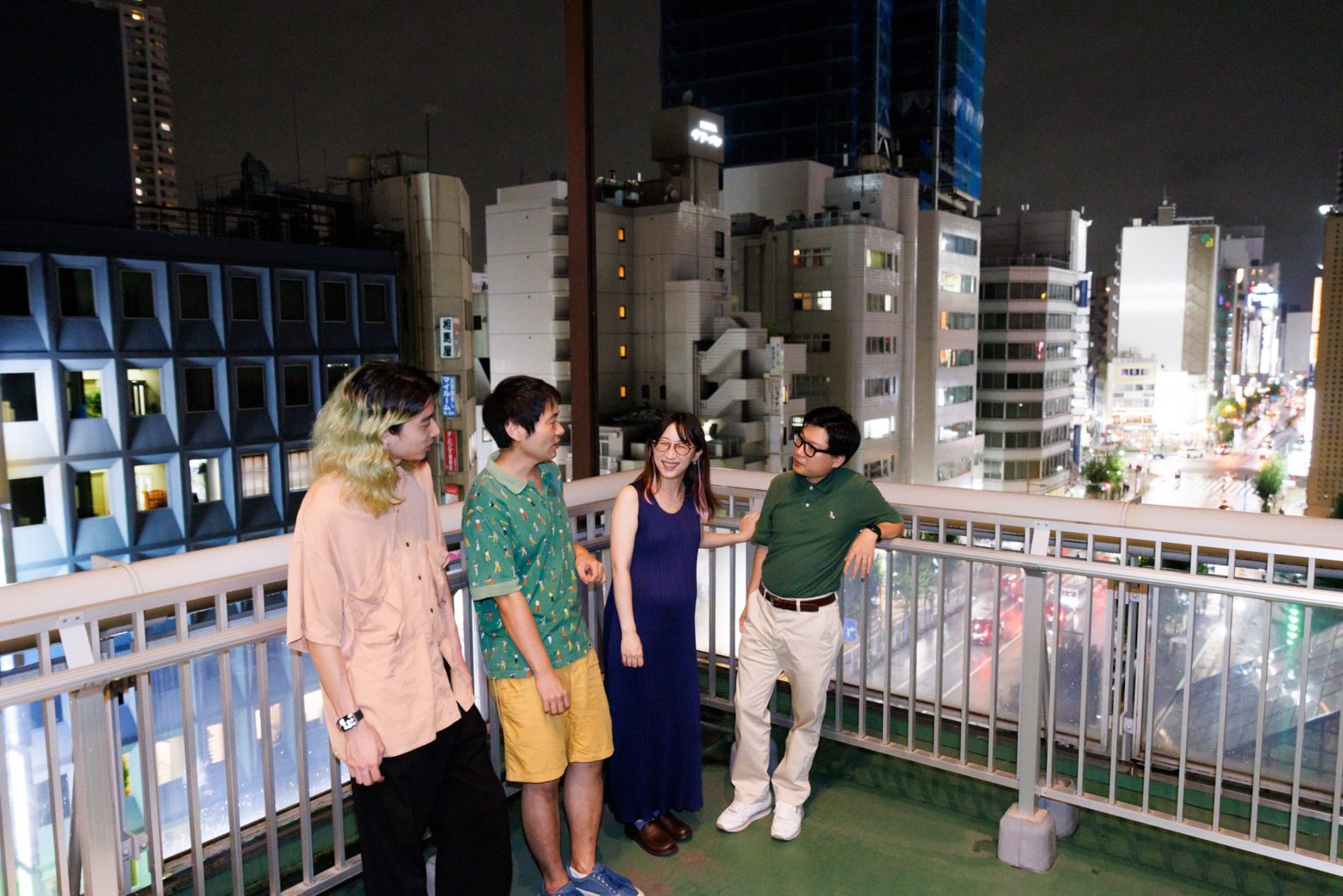
--I thought the use of various sounds in this work was interesting. Can you tell us about the sound design?
Kageyama: Roughly speaking, the sound is divided into BGM-like music and noise-like sound effects. I choose the music myself, and I usually choose from the songs I was listening to at the time of writing. As for the noise-like parts, I conveyed the image to Sakurauchi (Akumi), who is in charge of sound. On top of that, as for the overall sound, it has a kind of "ghostly" image. There is a British critic called Mark Fisher, who also writes music reviews. In his book, there is an interview with a musician who uses the crackle noise of records, which is interesting. I think that the idea of this work includes the atmosphere of noise, sounds that can be heard from far away, and the ghostly texture that emerges from them.
--The way the lines are delivered is also interesting.
hiyorigeta: There were no specific instructions on how to speak in this work... In that sense, the way of speaking in "Virtual Disorder" may be relatively normal compared to previous works by Noriha (laughs). But I'm sure Kageyama said that he wanted to "play a body without mass," right? I think some actors were influenced by that and thought about how to speak their lines.
Kageyama: That's right. I think what I was thinking about at the time of the premiere was a body that couldn't affect others. Also, one of the concepts was, "The play floats between the audience and the stage. The actors are influenced by this in their performance, and the audience actively engages with the play that is here. Can we create such a structure?"
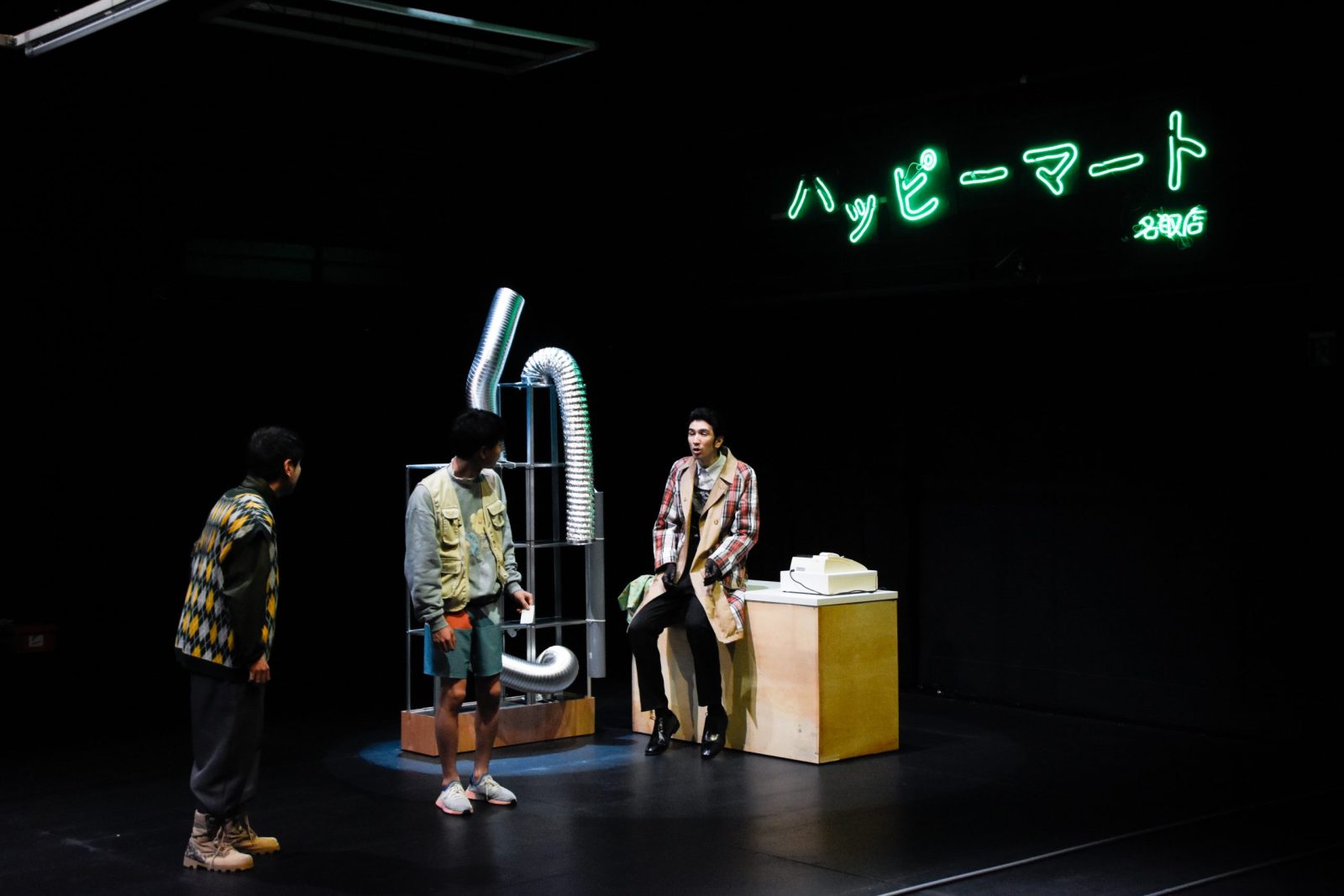
Hatakeyama: I played the role of a dog named Shizu-chan, which corresponds to Shizuka Gozen in the original Noh play. The fact that the character is called "Chan" and that the original role was a Shirabyoshi dancer became a hook for me when thinking about the role and how to speak. In the memo on my phone at the time, it said, "Act according to what everyone wants you to do," and I think that making a certain kind of charm work well also influenced the way I spoke my lines. I think it's a bit of a scary story, but I just react according to what they want me to do. I feel that's how I ended up speaking like that.
The discount age sends the message "We want you to come"
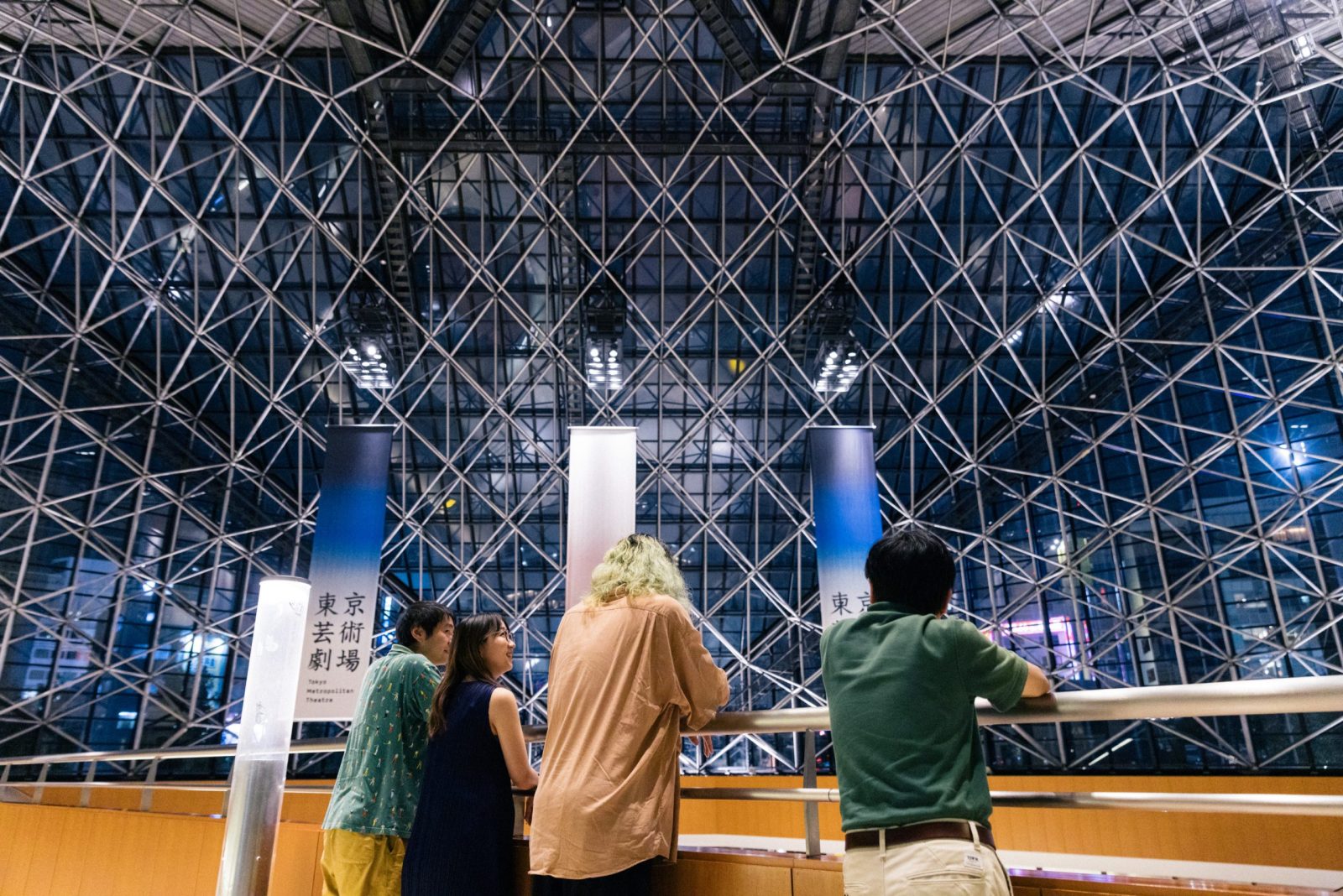
--I'm really looking forward to seeing how the various elements will resonate and appear in the re-run. This year's Tokyo Festival has set up discount tickets for those under 29 years old. Most general discounts are for those under 25, but I heard that the decision to raise the age limit was made after a proposal from the Noruha faction, especially after hiyorigeta san raised the issue. Please tell me what kind of considerations were made before this was decided.
hiyorigeta I hear the phrase "We want young people to come," which is often heard in the theater world, two questions come to mind: "Who are young people?" and "Is the age setting appropriate?" The general discount is usually for U23 to U25. But even in your late 20s, you've graduated from university, your parents' allowances have ended, and you're still in a period of no money. In addition, for people who are doing theater, this is the age when they should be watching the most in order to create good works in the future. If people move away from theater at this time, it's a loss for the theater world. When I told the production team of the art festival about this, they talked to other organizations and decided to implement a discount for the whole group. I honestly didn't imagine it would become such a big development, so I'm very surprised.
--The appeal of festivals is that you can see performances by a variety of different groups, so if the price goes down, it may encourage young people to see multiple performances.
Kageyama: That's true. In your late 20s, you change jobs, get married, and have a lot of life events. It's also the age where you move away from theater, so it's a message like, "No, you guys, come and see the theater." I thought about that while listening to Geta-kun's story.
It was Kageyama's suggestion that hiyorigeta (NORUHA) be free for those under 18, right?
Kageyama: Yes. As I said, setting a discount age also sends the message that "this is the target audience we want you to come." But if it's an attempt by an individual theater company, it's hard to reach the public even if you set it. But if it's a large framework like an art festival, the chances of getting it known increase. We also offered free tickets for those under 18 for "Night on the Island of Happiness" that we performed last year, but this was only possible because the venue was the Komaba Agora Theater, which also hosts high school plays. When you're a teenager, it's hard to find a place to belong, or to feel like "I'm happy to be here" or "I have a place to belong." I myself was the type of person who would stay in the library or the club room all lunch break, so maybe that's why I feel that way... But I'm sure there are people like that out there. If people who have a hard time finding a place to belong get to know theater and feel "comfortable," there's nothing I could be happier about. (End)
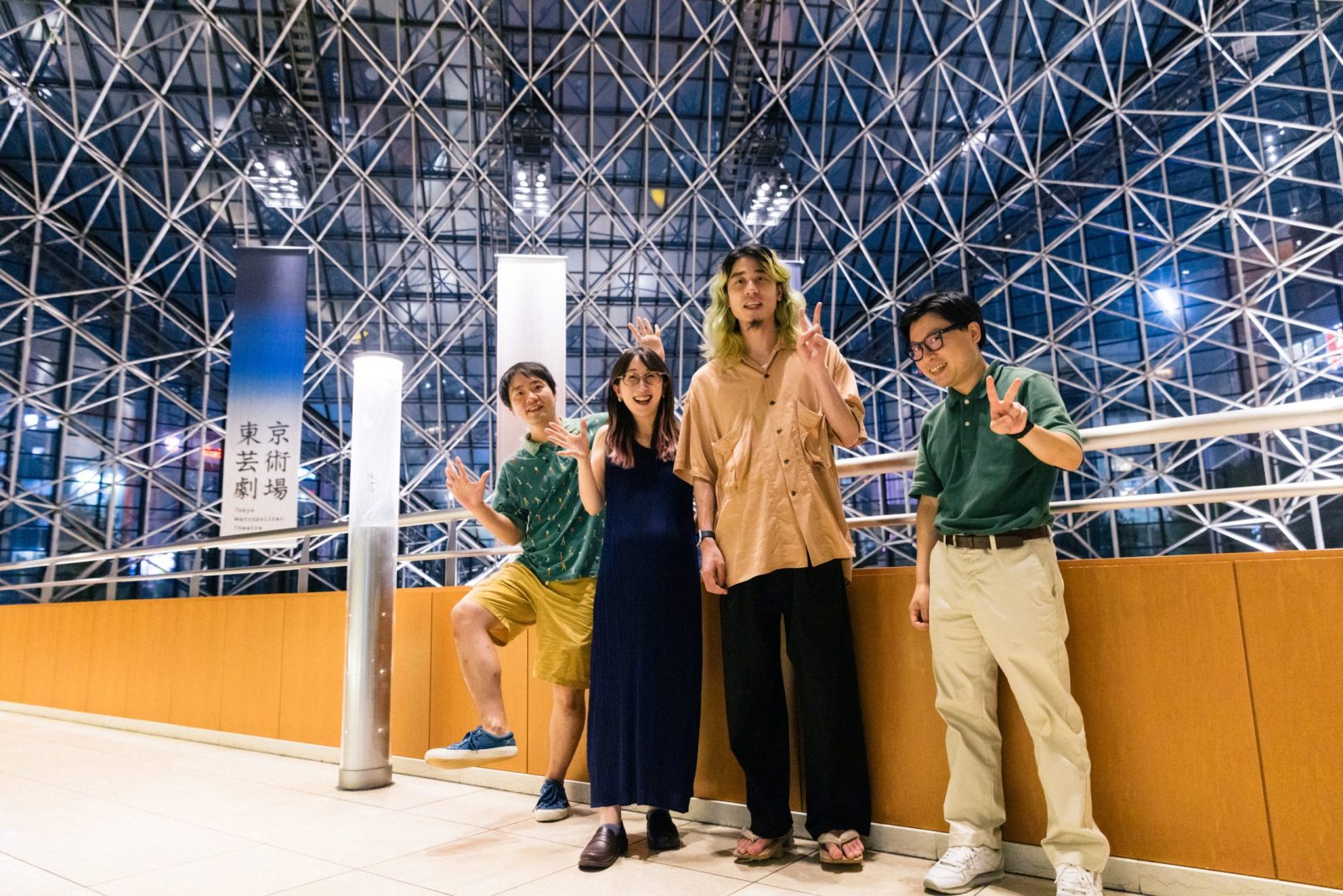
Kishodai Kageyama
Born in Hamamatsu, Shizuoka Prefecture in 1988. Graduated from Waseda University’s School of Letters, Arts and Sciences. Founded the theater project “sons wo:” in 2008. Works on playwriting, directing and sound design. Changed name to “NORUHA” in 2018. Participated in Festival/Tokyo 13 open call program in 2013 with “Noraneko no Kurininu”. A Saison Fellow at the Saison Foundation since 2015. Won the 17th AAF Drama Award Grand Prize in 2017 for “City III”.
hiyorigeta(Weather-friendly Clogs)
Born in Tottori Prefecture in 1995. NORUHA in 2019. Has appeared in all subsequent productions. Special skills include cooking, tree climbing, tidying up, and praising people. Loves eating delicious food with others. Knowledgeable about geta and Oishinbo.
Shun Hatakeyama
Born in Sapporo, Hokkaido in 1987. Graduated from the Department of Dramatic Arts at the Performing Arts Academy. As an actor, he has appeared in productions such as Bruno Produce, 20 Years Old Country, and Demi-Human City. He has also appeared in Kishodai Kageyama productions such as Good Morning Club, Wild Kafka @ Delicious Curry, and Penal Colony Europa. He is a director for the theater unit People Futoshi.
http://people-futoshi.blogspot.com/
Suzu Shibuki
Born in Hiroshima Prefecture in 1990. Office worker. Essay writer. Under the name “A Little Party ( @A_little_party ),” he is busy making mochi and making doujinshi.
note: https://note.com/suzu_shibuki
On joining the NORUHA/ Suzu Shibuki: https://note.com/noruha/n/n05f26a4f098d
NORUHA "Virtual Disorder"
Directed by: Kishodai Kageyama*, Momo Hachisu(Group Nohara)
Screenplay: Kishodai Kageyama*
Cast: Yuko Tsujimura, Risa Tsuruta(Daydream), Kiyoshi Hashimoto(Bruno Produce/y/n), Shun Hatakeyama* (PEOPLE Futoshi), hiyorigeta*
*= NORUHA Project Team
Period: Thursday, September 19th, 2024 to Sunday, September 22nd (National Holiday)
Location: Tokyo Metropolitan Theatre, Theatre West Language: Japanese (with English open subtitles, all dates)
Ticket price: All seats open (with admission number) Tax included Adults 3,000 yen / Under 29 years old 2,000 yen (limited number) / Under 18 years old free (limited number)
▷ Click here for details of the program





